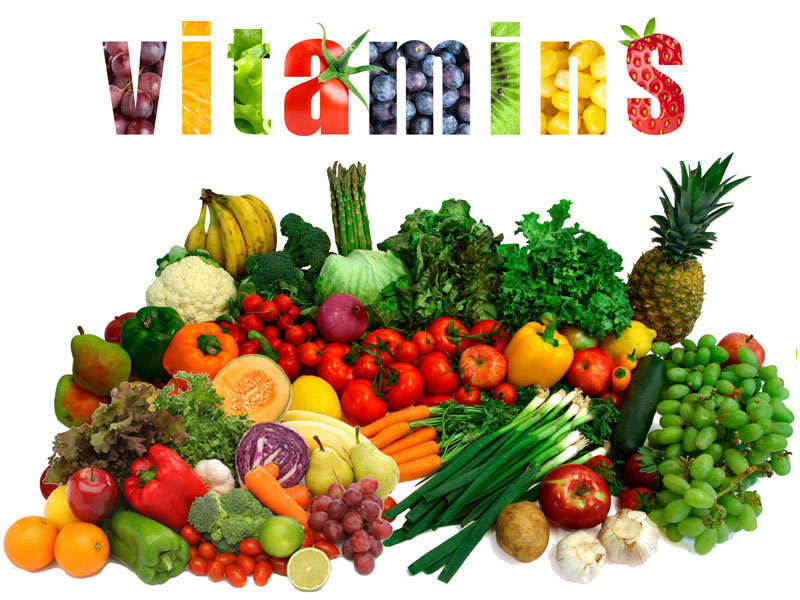Vitamins – General Science Notes – For W.B.C.S. Examination.
ভিটামিন – সাধারণ বিজ্ঞান নোট – WBCS পরীক্ষা।
Vitamins are a group of substances that are needed for normal cell function, growth, and development.Continue Reading Vitamins – General Science Notes – For W.B.C.S. Examination.
| Approximate Year of discovery | Vitamin / Chemical Name | Food source | Deficiency Disease |
|
1913 |
Vitamin A (Retinol, retinal) | Cod liver oil | Night blindness,
Keratomalacia |
|
1910 |
Vitamin B1 (Thiamine) | Rice bran | Beriberi, Wernicke-Korsakoff syndrome |
|
1920 |
Vitamin B2 (Riboflavin) | Eggs | Ariboflavinosis |
|
1936 |
Vitamin B3 (Niacin, niacinamide) | Liver | Pellagra |
|
1931 |
Vitamin B5 (Pantothenic acid) | Liver | Paresthesia |
|
1934 |
Vitamin B6 (Pyridoxine, pyridoxamine, pyridoxal) | Rice bran | Anemia, peripheral neuropathy. |
|
1931 |
Vitamin B7 (Biotin) | Liver | Dermatitis, enteritis |
|
1941 |
Vitamin B9 (Folic acid, folinic acid) | Liver | Deficiency during pregnancy is associated with birth defects, such as neural tube defects |
|
1926 |
Vitamin B12 (Cyanocobalamin, hydroxycobalamin, methylcobalamin) | Liver | Megaloblastic anemia |
|
1920 |
Vitamin C (Ascorbic acid) | Lemons | Scurvy |
|
1920 |
Vitamin D (Ergocalciferol, cholecalciferol) | Cod liver oil | Rickets and Osteomalacia |
|
1922 |
Vitamin E (Tocopherols, tocotrienols) | Wheat germ oil,
Cosmetics and liver |
Sterility, Deficiency is very rare; mild hemolytic anemiain newborn infants |
|
1929 |
Vitamin K (phylloquinone, menaquinones) | Alfalfa |
Each of the vitamins listed below has an important job in the body. A vitamin deficiency occurs when you do not get enough of a certain vitamin. Vitamin deficiency can cause health problems.
Not eating enough fruits, vegetables, beans, lentils, whole grains and fortified dairy foods may increase your risk for health problems, including heart disease, cancer, and poor bone health (osteoporosis).
- Vitamin A helps form and maintain healthy teeth, bones, soft tissue, mucous membranes, and skin.
- Vitamin B6 is also called pyridoxine. Vitamin B6 helps form red blood cells and maintain brain function. This vitamin also plays an important role in the proteins that are part of many chemical reactions in the body. The more protein you eat the more pyridoxine your body requires.
- Vitamin B12, like the other B vitamins, is important for metabolism. It also helps form red blood cells and maintain the central nervous system.
- Vitamin C, also called ascorbic acid, is an antioxidant that promotes healthy teeth and gums. It helps the body absorb iron and maintain healthy tissue. It is also essential for wound healing.
- Vitamin D is also known as the “sunshine vitamin,” since it is made by the body after being in the sun. Ten to 15 minutes of sunshine 3 times a week is enough to produce the body’s requirement of vitamin D for most people at most latitudes. People who do not live in sunny places may not make enough vitamin D. It is very hard to get enough vitamin D from food sources alone. Vitamin D helps the body absorb calcium. You need calcium for the normal development and maintenance of healthy teeth and bones. It also helps maintain proper blood levels of calcium and phosphorus.
- Vitamin E is an antioxidant also known as tocopherol. It helps the body form red blood cells and use vitamin K.
- Vitamin K is needed because without it, blood would not stick together (coagulate). Some studies suggest that it is important for bone health.
- Biotin is essential for the metabolism of proteins and carbohydrates, and in the production of hormones and cholesterol.
- Niacin is a B vitamin that helps maintain healthy skin and nerves. It also has cholesterol-lowering effects at higher doses.
- Folate works with vitamin B12 to help form red blood cells. It is needed for the production of DNA, which controls tissue growth and cell function. Any woman who is pregnant should be sure to get enough folate. Low levels of folate are linked to birth defects such as spina bifida. Many foods are now fortified with folic acid.
- Pantothenic acid is essential for the metabolism of food. It also plays a role in the production of hormones and cholesterol.
- Riboflavin (vitamin B2) works with the other B vitamins. It is important for body growth and the production of red blood cells.
- Thiamine (vitamin B1) helps the body cells change carbohydrates into energy. Getting enough carbohydrates is very important during pregnancy and breastfeeding. It is also essential for heart function and healthy nerve cells.
- Choline helps in normal functioning of the brain and nervous system. Lack of choline can cause swelling in liver.
- Carnitine helps the body to change fatty acids into energy.
Please subscribe here to get all future updates on this post/page/category/website


 +919674493673
+919674493673  mailus@wbcsmadeeasy.in
mailus@wbcsmadeeasy.in







































































































